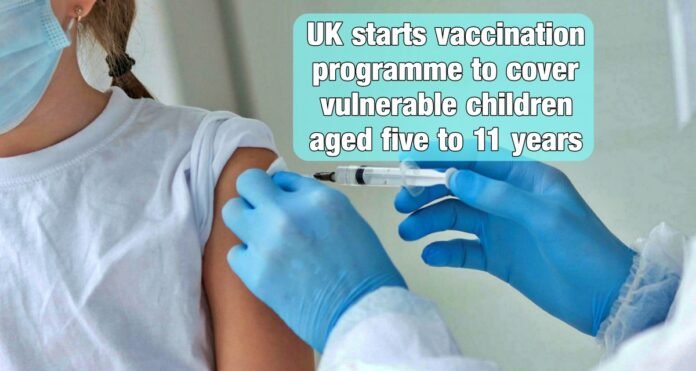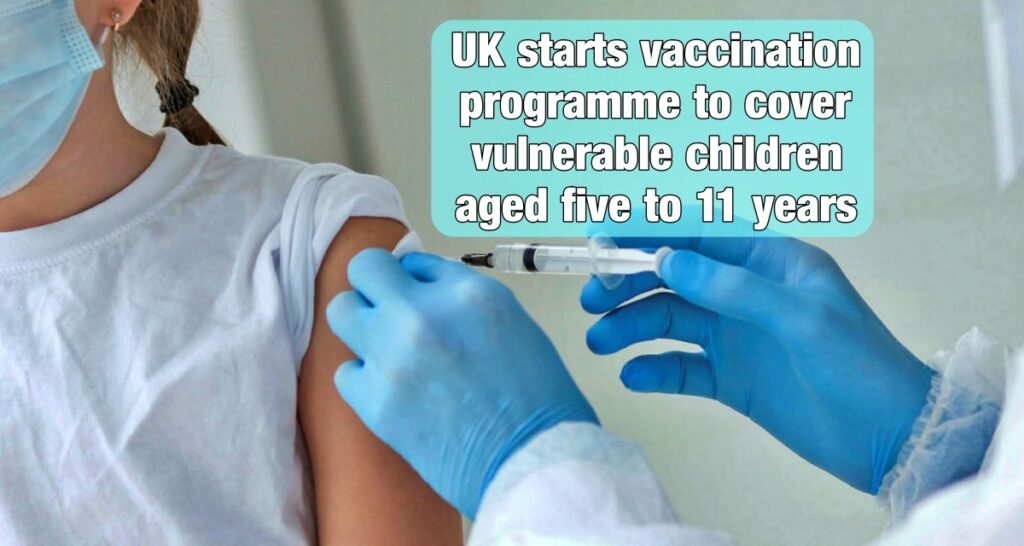
London: The UK’s National Health Service (NHS) on Sunday expanded its COVID-19 vaccination programme to cover vulnerable children aged five to 11 years. Eligible children include those with diabetes, immunosuppression, learning disabilities, and other serious conditions that place them at high risk from COVID-19. NHS England said nearly 500,000 eligible children in England are set to receive their first dose of a COVID vaccine in line with advice set out by the Joint Committee on Vaccination and Immunisation (JCVI). We know vaccines give significant protection against severe illness from COVID including the Omicron variant, so it is important that our youngest and most at-risk get protected, said Dr Nikki Kanani, an Indian-origin GP and deputy lead for the NHS vaccination programme.
The NHS is now vaccinating the most at risk 5-11-year-olds ensuring they get their vital dose of protection. Thousands of young people are still getting protected every day with millions vaccinated so far and we are asking parents not to delay coming forward as soon as the NHS contacts you, please come forward so the NHS can protect their youngest against the virus, she said. The NHS had earlier opened up vaccines for the over 12 age group and said it has delivered over 3.5 million vaccinations to people aged 12-17, including over 2.4 million first doses.
UK Vaccines Minister Maggie Throup said: I would like parents and guardians to be reassured that no new vaccine for children would have been approved unless the expected standards of safety, quality and effectiveness had been met. I encourage as many as possible to make sure they get their child the jab when contacted – the paediatric vaccine will offer the best possible protection for your child.

In line with procedures, patient information is sent out to parents and guardians with information on the COVID-19 vaccination. Parents and guardians are asked to attend with their children and are asked to read the patient information in advance of arriving for their appointment. Eligible children in the youngest cohort will get a second dose eight weeks after their first dose and can’t receive any vaccination until four weeks after a positive test for coronavirus.
Last month, the JCVI also issued updated guidance recommending all 16 and 17-year-olds get a Pfizer/BioNtech booster from three months (91 days) after their second dose. Following the expansion of a third booster vaccine for all 16 and 17-year-olds, over half of the eligible young people in this age group have already received their top-up protection.




















































